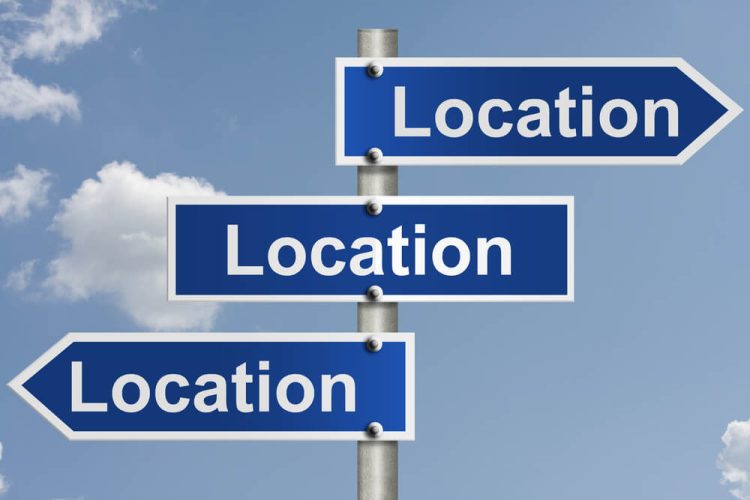
When it comes to insuring your house, your costs can vary wildly. There are many home insurance cost factors that can change the total cost of your policy. So, how much is homeowners insurance? Explore this guide to common factors that could impact your premium.
Why Home Insurance Premiums Vary So Much
The cost of your policy each month is one of the most important things to know as a first-time homeowner. So, what affects homeowners insurance rates and causes rates to vary? And what determines the cost of homeowners insurance?
Ultimately, it comes down to risk. The more risky and expensive it would be to pay an insurance claim or replace your home, the more your premium will cost. Insurers use specific details that impact your personal risk level and, ultimately, the price of your policy.
1. Where You Live (Yes, ZIP Code Matters)
Your location is one of the greatest home insurance cost factors that impact your premium. This is because your zip code has an impact on everything from the average cost of living to risk levels for different natural disasters.
Similar houses in different neighborhoods of the same metropolitan area could actually have different premiums. This is because risk factors change depending on where you live, down to the specific zip code.
Geographic Influences and Risks
Certain areas are more prone to different kinds of damage than others. For example, properties in coastal towns will likely have a greater risk of damage from hurricanes. Meanwhile, houses in tornado alley could be at risk of major damage from wind and debris. As a result, insurers need to factor these risks into coverage costs.
Floodplains are another location-specific risk to consider. Even within the same town, some areas could be at a high risk of flooding, while others have little to no risk. That’s why you need to factor your cost based on your specific zip code and not just your general area.
Proximity to Emergency Services
Insurers also look at how close the property is to emergency services, such as fire stations. Being close to a fire station could be the difference between minor and major damage to your home. If you’re located far away from help, it’s more likely that a fire or other disaster could cause serious damage, resulting in higher claim payouts and more expensive coverage.
2. The Age and Condition of Your Home
The age and condition of your property are also key home insurance cost variables. If your home is outdated and worn, it could be more likely to break down, resulting in a higher premium.
The Value of Newer Builds
A home in great condition may be cheaper to cover than a house that’s falling apart, but it all comes down to the replacement cost. If you have a brand-new property that is more expensive to rebuild, your policy will cost more than an older home worth less overall.
On the other hand, if the two homes will cost roughly the same to replace, the older home may be more expensive to insure since it may not hold up as well against Mother Nature.
However, that doesn’t automatically mean that all new homes are in better condition than old homes. It’s important to get input from an inspector to understand the true condition of your house and how it could affect your coverage.
Impact of Roof and Foundation Condition
Specifically, it’s important to look at the age and condition of your foundation and your roof. Because these components of your property are so expensive to repair or replace, having them in good shape can help lower your monthly policy costs. If you have an old home but recently replaced your roof, you’ll likely be able to save a bit on your insurance.
3. Your Coverage Limits and Deductible
Insurance is all about the trade-off between the cost you’re willing to pay and the risk you’re willing to take on. The more coverage you want, the more you’ll have to pay. This is one of the reasons that home renovations can impact your insurance. If you have a more expensive home, you’ll probably need higher policy limits to make sure you have enough coverage.
Keep in mind that in order to receive full payout for a claim, your home needs to be insured for at least 80% of its replacement value. This figure is an industry standard, so get clarification from your agent about what it means for you.

Balancing Deductibles with Premiums
If you want higher coverage limits for added peace of mind, you’ll need to pay a higher monthly premium. The same goes for your deductible; if you want to pay less for repairs when you make a claim, you’ll have to offset your low deductible with a higher monthly payment.
Necessity vs. Extras in Home Insurance
It can be hard to decide how much coverage you need. A standard policy is usually fine for most people, but you may want to purchase add-ons in certain situations. For example, you may want extra protection for your swimming pool or other structures on your property. If you want peace of mind, the home insurance you decide on will be worth the cost.
4. Safety Features and Security Systems
Having modern security systems and safety features can reduce the risk of filing a claim related to theft, accidents in the home, fires, and more. Because of this, many insurers will give you a discount for installing up-to-date safety tools.
Tech-Savvy Security Systems
Video surveillance cameras, alarm systems, motion-detector security lights, and other tools can all ward off break-ins and keep your home safer. Some insurers offer savings for DIY home systems, while others might require a professional system with live monitoring, so ask your provider about their requirements.
Fire Prevention System Benefits
Fire alarms are essential for staying safe if a fire breaks out on your property. You can also up the ante and get extra protection by installing a full-fledged prevention system with built-in sprinklers to keep any flames at bay.
5. Personal Factors That Make a Difference
It may surprise you that your own financial history can impact your premiums. Your rate could vary based on your history of filing claims and making payments.
Credit Score and Financial History
Having a better credit score will often qualify you for better rates on insurance. A history of making regular payments is a good sign to insurers and can make a difference in your risk profile.
Past Claims and Their Effect on Rates
If you’ve made multiple claims in the past, it could potentially increase your premiums in the future. If your insurer sees that you regularly make claims, they could see you and your property as higher risk.
What You Can Do to Lower Your Premium
To get the lowest possible premium, assess your plan and make sure you have the level of coverage that fits your property. You can also research average premiums in your target zip code during the home-buying process to make sure your dream house works with your monthly budget. It’s also important to compare quotes to find the best possible deal.
Know What Impacts Your Rate — Freeway Insurance Can Help You Save
There are many home insurance premium factors that could influence the monthly cost of your policy. Learning about some of the main players is the best way to stay on top of your insurance costs.
If you’re looking for affordable insurance that doesn’t compromise on coverage, get a quote from Freeway. You’ll be able to find a plan that’s right for your house while also giving you dependable coverage when you need it. Get an online quote, call us at 800-777-5620 or stop by one of our convenient locations to start saving.



